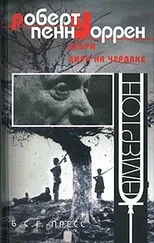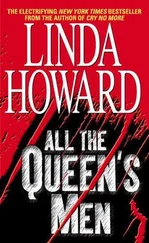Роберт Уоррен - All the king's men
Здесь есть возможность читать онлайн «Роберт Уоррен - All the king's men» весь текст электронной книги совершенно бесплатно (целиком полную версию без сокращений). В некоторых случаях можно слушать аудио, скачать через торрент в формате fb2 и присутствует краткое содержание. Жанр: Современная проза, на английском языке. Описание произведения, (предисловие) а так же отзывы посетителей доступны на портале библиотеки ЛибКат.
- Название:All the king's men
- Автор:
- Жанр:
- Год:неизвестен
- ISBN:нет данных
- Рейтинг книги:4 / 5. Голосов: 1
-
Избранное:Добавить в избранное
- Отзывы:
-
Ваша оценка:
- 80
- 1
- 2
- 3
- 4
- 5
All the king's men: краткое содержание, описание и аннотация
Предлагаем к чтению аннотацию, описание, краткое содержание или предисловие (зависит от того, что написал сам автор книги «All the king's men»). Если вы не нашли необходимую информацию о книге — напишите в комментариях, мы постараемся отыскать её.
All the king's men — читать онлайн бесплатно полную книгу (весь текст) целиком
Ниже представлен текст книги, разбитый по страницам. Система сохранения места последней прочитанной страницы, позволяет с удобством читать онлайн бесплатно книгу «All the king's men», без необходимости каждый раз заново искать на чём Вы остановились. Поставьте закладку, и сможете в любой момент перейти на страницу, на которой закончили чтение.
Интервал:
Закладка:
But by the time I was standing in front of a door at one end of the cross hall and was looking up at another tin sign, and knew from it that I had arrived at the one-man leper colony of Mason City.
The leper was sitting in the room, not doing anything, all by himself. There wasn't anybody to sit and spit and jaw with him under his electric fan.
"Hello," I said, and he looked up at me as though I were a spook and the word I had used were in a foreign language. He didn't answer me right off, and I figured he was like one of those fellows who gets marooned on a desert island for twenty years and when the longboat is beached and the jolly tars leap out on the sand and ask him who the hell he is, he can't say a word because his tongue is so rusty.
Well, Willie wasn't that bad off, for he finally managed to say hello, and that he remembered me from our meeting in Slade's place a few months back, and to ask me what I wanted. I told him, and he grinned a grin more wistful than happy and asked me why I wanted to know.
"The editor told me to find out," I said, "and why he wants me to find out only God knows. Maybe it is because it is news."
That seemed to be enough to satisfy him. So I didn't tell him that beyond my boss the managing editor there was a great high world of reasons but to a fellow like me down in the ditch it was a world of flickering diaphanous spirit wings and faint angel voices I didn't always savvy and stellar influences.
"I reckon it is news," Willie allowed.
"What's been going on around here?"
"I don't mind telling you," he said. He began telling me and he finished telling me about eleven o'clock that night that Lucy Stark, after she had put the kid to bed, and me sitting with him in the parlor out at his pappy's place, where he had asked me to spend the night, and where he and Lucy ordinarily lived in the summer and where they were going to live that winter too instead of in a room in town because Lucy had just been fired from her teaching job for the coming year and there wasn't any reason to be in town and be spending good money for rent. And there was very likely to be another reason for there not being any reason to stay in town, for Willie was coming up for re-election and his chances looked about as good as the chances of a flea making a living of a carved marble lion on a monument. He had only got the job in the first place, he told me, because Dolph Pillsbury, the Chairman of the Board of County Commissioners, was a sort of secondhand relative of old Mr. Stark, by marriage or something, and Pillsbury had had a falling-out with the other fellow who wanted to be Treasurer. Pillsbury about ran the county, he and the Sheriff, and he was sick of Willie. So Willie was on his way out, and Lucy was already out.
"And I don't care if I am," Lucy Stark said, sitting there in the parlor, sewing by the lamp on the table where the big Bible and the plush-bound album were. "I don't care a bit if they won't let me teach any more. I taught six years, counting that term I was out and having little Tommie, and nobody ever said I wasn't all right, but now they write me a letter and say there're complaints about my work and I don't show a spirit of co-operation."
She lifted her sewing and bit off the thread in the way women do to make your flesh crawl. When she leaned over, the light hit her hair to show up the auburn luster lurking in the brown which the operator of the recently established Mason City Beauty Shoppe hadn't been entirely able to burn out with the curling tongs when she gave the marcel treatment. It was too bad about Lucy's hair even if the luster was still there. She was still girlish then, about twenty-five but not looking it, with a nice little waist coming straight up out of the satisfactory and unmeager hips and a nice little pair of ankles crossed in front of the chair, and her face was girlish, with soft, soothing contours and large deep-brown eyes, the kind that makes you think of telling secrets in the gloaming over a garden gate when the lilacs are in bloom along the picket fence of the old homestead. But her hair was cut off at about neck level and marcelled the way they did it back then, which was a shame because the face she had was the kind that demanded to be framed by a wealth of long and lustrous-dusky tresses tangled on the snow-white pillow. She must have had plenty of hair, too, before the massacre.
"But I don't care," she said, and lifted her head out of the light. I don't want to teach in a schoolhouse they build just so somebody can steal some money. And Willie doesn't want to be Treasurer either, if he has to associate with those dishonest people."
"I'm going to run," Willie said glumly. "They can't keep me from running."
"You can give a lot more time to studying your law books," she said to him, "when you aren't in town all the time."
"I'm going to run," he repeated, and jerked his head with that sharp motion he had to get the lock of hair out of his eyes. "I'm going to run," he repeated again, as though he weren't talking to Lucy, or to me, but to the wide sweet air or God-Almighty, "if I don't get a single God-damned vote."
Well, he did run when the time came, and he got more than one vote, but not many more, and Mr. Dolph Pillsbury and his pals won that round. The fellow who was elected against Willie that fall didn't hang his hat up in the office before he had signed the check for the advance payment to J. H. Moore, and J. H. Moore built the schoolhouse. But that is getting ahead of the story.
The story, as Willie told it, was this: The Jeffers Construction Company had low bid at one hundred and forty-two thousand. But there were two more bids in between the Jeffers bid and the Moore bid, which was one hundred and sixty-five thousand and a lot of nickels and dimes. But when Willie kicked about the Moore business, Pillsbury started the nigger business. Jeffers was a big-time contractor, from the south of the state, and he used a lot of Negro bricklayers and plasterers and carpenters in some of his crews. Pillsbury started howling that Jeffers would bring in a lot of Negroes–and Mason County, as I said, is red-neck country–and worse, some of the Negroes would be getting better pay, being skilled laborers, than the men he would pick up around Manson City for some of the work. Pillsbury kept the pot boiling.
He kept it boiling so well that the public overlooked the fact that there were two bids in between Jeffers and Moore and the fact that Pillsbury had a brother-in-law who had a brickkiln in which Moore had an interest and that in the not distant past a lot of the bricks had been declared rotten by the building inspector on a state job and had been refused and there had been a lawsuit and that as sure as God made little green apples with worms in them, bricks from that same kiln would be used in the schoolhouse. The kiln owned by Moore and Pillsbury's brother-in-law used convict labor from the state pen and got it cheap, for the brother-in-law had some tie well up in the system. In fact, as I picked up later, the tie was so good that that building inspector who squawked about the bricks on the state job got thrown out, but I never knew whether he was honest or just ill-informed.
Willie didn't have any luck bucking Pillsbury and the Sheriff. There was an anti-Pillsbury faction, but it didn't amount to much, and Willie didn't add to its numbers. Willie went out and buttonholed folks on the street and tried to explain things to them. You could see Willie standing on a street corner, sweating through his seersucker suit, with his hair down in his eyes, holding an old envelope in one hand and a pencil in the other, working out figures to explain what he was squawking about, but folks don't listen to you when your voice is low and patient and you stop them in the hot sun and make them do arithmetic. Willie tried to get the _Mason County Messenger__ to print something, but they wouldn't. Then he wrote up a long statement of the case as he saw it about the bids, and tried to get the _Messenger__ to print it on handbills in their job printing shop, paid for, but they wouldn't do it. So Willie had to go to the city to get the work done. He came back with his handbills and hired a couple of kids to tote them from house to house in town. But the folks of one of the kids made him stop as soon as they found out, and when the other kid didn't stop, some big boys beat him up.
Читать дальшеИнтервал:
Закладка:
Похожие книги на «All the king's men»
Представляем Вашему вниманию похожие книги на «All the king's men» списком для выбора. Мы отобрали схожую по названию и смыслу литературу в надежде предоставить читателям больше вариантов отыскать новые, интересные, ещё непрочитанные произведения.
Обсуждение, отзывы о книге «All the king's men» и просто собственные мнения читателей. Оставьте ваши комментарии, напишите, что Вы думаете о произведении, его смысле или главных героях. Укажите что конкретно понравилось, а что нет, и почему Вы так считаете.





![Роберт Уоррен - Рассказы [Компиляция]](/books/419993/robert-uorren-rasskazy-kompilyaciya-thumb.webp)


